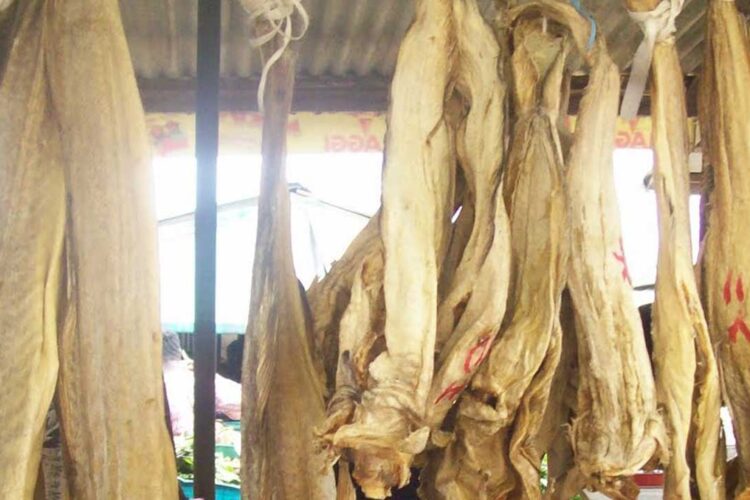
The Fisheries Consultant to the Norwegian Seafood Council in Nigeria, Abiodun Oritsejemine Cheke, who made the call during an inspection visit to a major stockfish market, White Sand, Otto and Lagos urged agencies such as the National Agency for Food and Drug Administration and Control (NAFDAC) and the Federal Department of Fisheries to step up enlightenment efforts on best handling and preservation practices.
According to her, while the council continuously educates retailers and distributors on maintaining high hygiene standards, some local handlers may resort to unsafe methods like using sniper or other chemicals out of ignorance.
“Let’s assume those using sniper and other unhygienic methods don’t know how to do it properly, I would implore NAFDAC and fisheries authorities to go there and train them. When you train them, you can sanction them. But if you’ve not trained them, like we do in the Seafood Council, the practice will continue,” Cheke said.
She stressed that Norwegian stockfish is naturally preserved, noting that no additives, not even salt, are used in its production.
“From the water, it goes straight to the processing factory where it’s gutted, washed, and spread in the cold snow for about six months to dry out. The final drying is done at room temperature before it’s packaged and certified by the EFTA Quality Assurance Group before export,” she explained.
Cheke added that inspections carried out at stockfish warehouses and markets in Lagos revealed no signs of chemical contamination, pests, or poor storage conditions.
A trader under Masterfish Chikaodi Onyekwere, who appreciated the quality of Norwegian stockfish, lamented the rising prices caused by high tariffs and import duties.
“It’s a good business but very challenging. Before now, we usually do something around N8m, but now it’s between N18m and N20m. The hike has slowed the market because people can’t afford it as before,” he said.
Onyekwere appealed to the government to reduce import tariffs, describing stockfish as a daily consumable that should not be treated like contraband.
“It’s what everybody eats, if tariffs keep rising, people will switch to other species of fish,” he stated.
Also, the Chief Financial Officer of Sufi, a premium seafood company in Norway, Truls Helness affirmed that the stockfish drying process is 100 per cent natural, relying solely on wind, sunlight, and cold air.
“Every fish we use is wild-caught. No farm fish, no chemicals, only Mother Earth does the work. The process is sustainable and healthy,” Helness said.
He attributed reports of chemical use to attempts by some handlers to extend the product’s shelf life beyond its natural limit. “This drying method itself is preservation. It doesn’t need chemicals. But when people try to keep it for years in high temperatures, that’s when problems arise,” he added.
Comments
This site uses User Verification plugin to reduce spam. See how your comment data is processed.